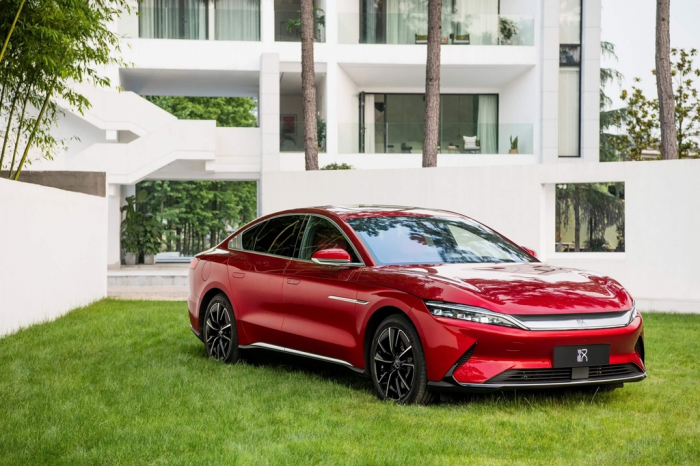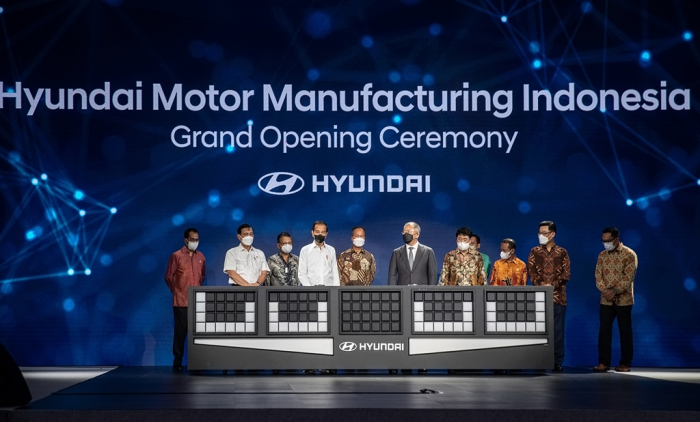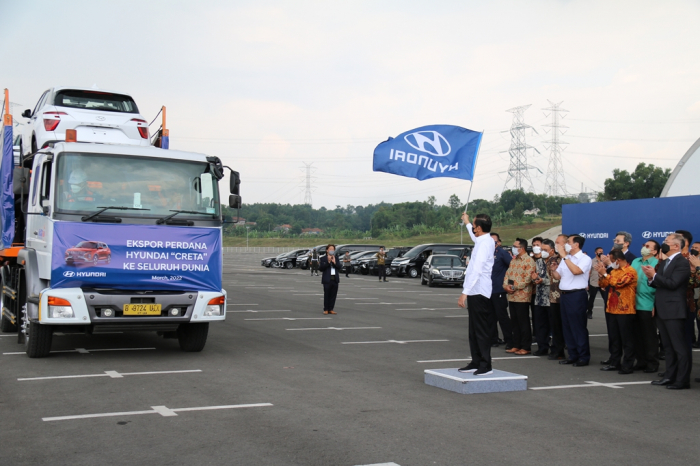Electric vehicles
Hyundai faces growing rivalry with China’s BYD in Southeast Asia
BYD will compete head-to-head with Hyundai and LG Energy, which are making Indonesia their Southeast Asian hub
By Sep 14, 2022 (Gmt+09:00)
2
Min read
Most Read
LG Chem to sell water filter business to Glenwood PE for $692 million


Kyobo Life poised to buy Japan’s SBI Group-owned savings bank


KT&G eyes overseas M&A after rejecting activist fund's offer


StockX in merger talks with Naver’s online reseller Kream


Mirae Asset to be named Korea Post’s core real estate fund operator



Chinese electric vehicle maker BYD’s announcement last week that it will build its first overseas EV plant in Thailand is setting off alarm bells for Hyundai Motor Co., which is striving to enhance its presence in Southeast Asia.
BYD, the world’s second-largest EV maker, said last Thursday that it signed a deal to open its first wholly invested passenger car factory outside China in Thailand to manufacture electric vehicles and plug-in hybrid cars (PHEVs), targeting the fast-growing Southeast Asian market.
The Chinese company, backed by Warren Buffett’s Berkshire Hathaway Inc., said it expects the new Thai EV plant to start operations in 2024 with an annual capacity of 150,000 vehicles.
Already an EV giant in China, BYD has been expanding rapidly into other countries, including announcements in recent months of its plans to enter the passenger market in Japan, home to auto giant Toyota Motor.
BYD said it aims to turn Thailand into its EV production hub in Southeast Asia as the country aims to ramp up local EV output to reach at least 30% of total car production by 2030.
The Chinese company, which has already forged a partnership with a local dealer, is looking to sell over 10,000 cars made from its Chinese plants in Thailand this year.

BATTLE WITH HYUNDAI MOTOR, LG ENERGY
BYD, which is also a leading battery maker, now poses a threat to both Hyundai Motor and LG Energy Solution Ltd., which have joined forces to expand their presence in Southeast Asia through their joint venture in Indonesia.
In August of last year, Hyundai Motor Group and LG Energy agreed to set up a $1.1 billion joint venture to produce NCMA (nickel, cobalt, manganese and aluminum) lithium-ion battery cells in Indonesia.
The factory will begin commercial production in the first half of 2024 with an annual capacity of 10 GWh of battery cells, enough for over 150,000 EVs.
The new battery cell plant is close to Hyundai’s Indonesian car factory, which in March started mass production of its iconic all-electric IONIQ 5 crossover to crack the Southeast Asian market dominated by Japanese carmakers such as Toyota and Honda.
Hyundai has sold 648 units of the IONIQ 5 in Indonesia so far this year.

According to market researcher Marklines, Hyundai Motor ranked sixth in the Indonesian car market with a 5.9% share as of August, up from 0.3% in August of last year.
LG Energy, Korea’s top battery maker, is also facing an uphill battle with BYD.
Industry data showed LG has given up its position as the world’s No. 2 battery player to BYD since April after Tesla, a key customer of LG, suspended its production in China due to China’s zero-COVID-19 lockdown.
The Chinese company, which last year said it will use its self-developed “Blade” battery for its EVs, recently said it will also manufacture automotive chips in-house.
From next month, BYD plans to produce 8-inch auto chips at a plant with an annual capacity of 50,000 units.
Write to Hyung-Kyu Kim at khk@hankyung.com
In-Soo Nam edited this article.
More to Read
-
 BatteriesHyundai Motor, LG Energy secure $710 mn for battery JV in Indonesia
BatteriesHyundai Motor, LG Energy secure $710 mn for battery JV in IndonesiaAug 22, 2022 (Gmt+09:00)
2 Min read -

-
 Business & PoliticsIndonesian president to visit Hyundai Motor during Korea visit
Business & PoliticsIndonesian president to visit Hyundai Motor during Korea visitJul 26, 2022 (Gmt+09:00)
3 Min read -
 AutomobilesHyundai to make IONIQ 5 in Indonesia, EV hub for ASEAN market
AutomobilesHyundai to make IONIQ 5 in Indonesia, EV hub for ASEAN marketMar 16, 2022 (Gmt+09:00)
3 Min read -
 Mergers & AcquisitionsSamsung sells $1.3 bn stake in China’s BYD, keeps watchers puzzled
Mergers & AcquisitionsSamsung sells $1.3 bn stake in China’s BYD, keeps watchers puzzledSep 06, 2021 (Gmt+09:00)
2 Min read
Comment 0
LOG IN


